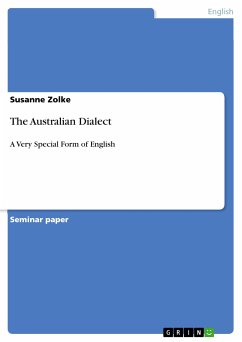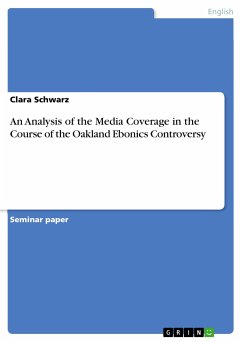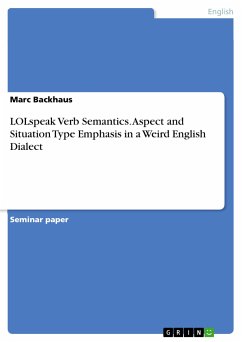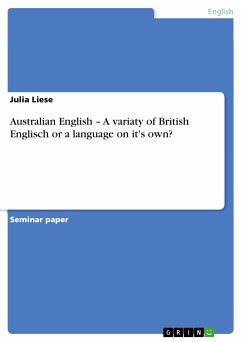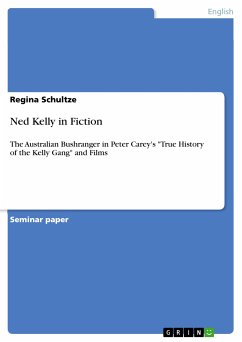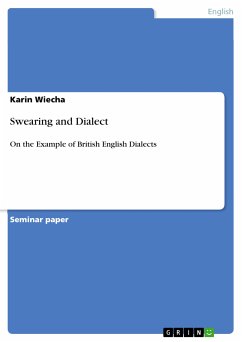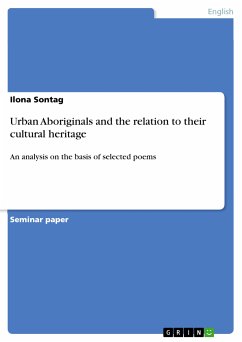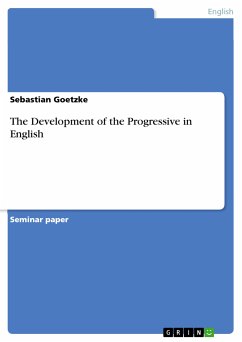Seminar paper from the year 2004 in the subject English Language and Literature Studies - Linguistics, grade: Good, University of Hannover (English Seminar), course: English and its dialects, language: English, abstract: Abstract When a language is spread all over the world, it naturally is not exactly the same everywhere. The language takes different forms in different places and these forms are distinguishable from each other by certain characteristics. These forms are dialects. In the case of English there are extraordinarily many dialects since the English language is spoken in many countries and functions as the lingua franca of the world. English has achieved global status. It is the language which is most prevalently taught and used as a foreign language in more than a 100 countries. Apart from that, there are several nations which have large numbers of the people speaking English as their mother tongue, i.e. the USA, Canada, Britain, Ireland, Australia and New Zealand. Among these, Australia is said to be one of the most monolingual countries. However, this is not the only reason why investigations about Australian English are interesting. Since Australia is a very young nation, the dialect which has developed there, started its way up only 200 years ago. In addition, many linguists have referred to the striking homogeneity of Australian English (AusE). Subjective opinions about this dialect cause great deals of controversy and although this reaction might be observed with many dialects, AusE is in some way predestined for evoking controversial feelings. In this paper I will try to give comprehensible explanations why the Australian dialect is a very special form of English.
Bitte wählen Sie Ihr Anliegen aus.
Rechnungen
Retourenschein anfordern
Bestellstatus
Storno

